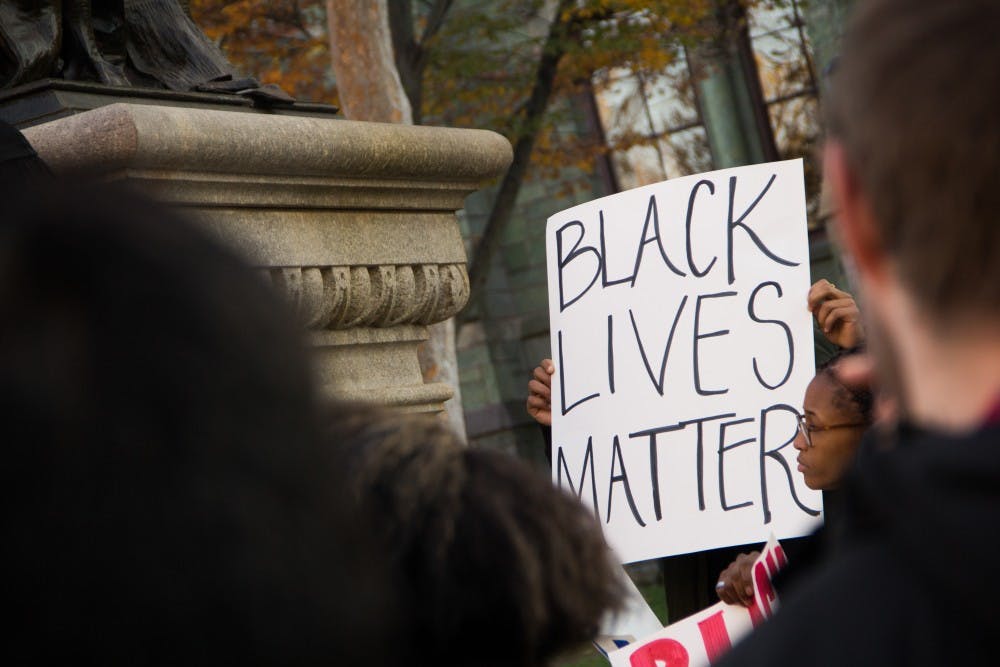Following several reports of hate crimes allegedly in response to President-Elect Trump’s victory, people who don’t belong to minority groups showed support by wearing safety pins. The pin is intended to identify that person as an ally to minorities.
This “safety pin movement” has started a new conversation on what it means to be an ally. The Penn Women’s Center has been advertising an event about ally-ship next Tuesday and Wednesday.
College junior Maya Arthur, former United Minorities Council board member, finds the safety pin to be “frustrating”.
“Instead of coming to people actively they want people to come to them,” Arthur said, adding that she feels this representation of ally-ship is not effective in solving problems that minorities face.
Arthur encourages students who don’t identify as minorities to join on-campus movements. “If there are more white students involved people see power in that number,” Arthur said.
She recalled that there were white students who participated in a walk-out in protest of theracist GroupMe message sent just before Thanksgiving break. However, she believes that more students need to be supportive of minority communities on campus.
College senior Chaz Smith believes that there is work to be done on both sides and that it is hard to pinpoint exactly what is expected of allies. “This has been the elephant in the room for a long time. I honestly don’t think anyone really knows,” Smith said.
Following the racist GroupMe messages, UMOJA, the umbrella organization for black student groups, held a town hall to discuss what had happened. The email inviting students included the instruction: “This is exclusively for black people.”
“That would be a great opportunity to listen and hear something they haven’t before,” Smith said of why it could have been beneficial for UMOJA to include non-black allies in the discussion. (A second meeting, which included non-black allies, took place after the black-only town hall.)
Smith believes that the first part of successful ally-ship is understanding. “If you are a white person and you want to support and help minorities the best thing you can do is listen,” he said.
Smith compared white ally-ship for black causes to his own work as a male advocate for women’s issues. “As a male I have been learning about the disadvantages that women have and listening to what other women say,” Smith said.
He used the information he learned to make a video published on the Huffington Post about the importance of understanding sexual assault.
Besides learning about minority issues, Arthur and Smith both have ideas for what actions students and administrators can take.
“I want to see white students talk to professors, go to events by UMC and UMOJA, be willing to have hard conversations with friends and family, call the board of trustees, and demand institutional change,” Arthur said. ”
“First listen to people to gain understanding,” Smith said, “then use your privilege, new understanding and your voice.”
Arthur believes that if organizations such as Penn want to change, they need to show actions that they are making towards supporting minorities such as hiring more diverse faculty rather than just sending supportive emails.
“Penn needs to bring resources to their students and show that we don’t accept this,” Arthur said.
Editor's Note: This article has been updated to include reference to a second meeting held after the release of racist GroupMe targeting freshmen. This second meeting included non-black allies.









